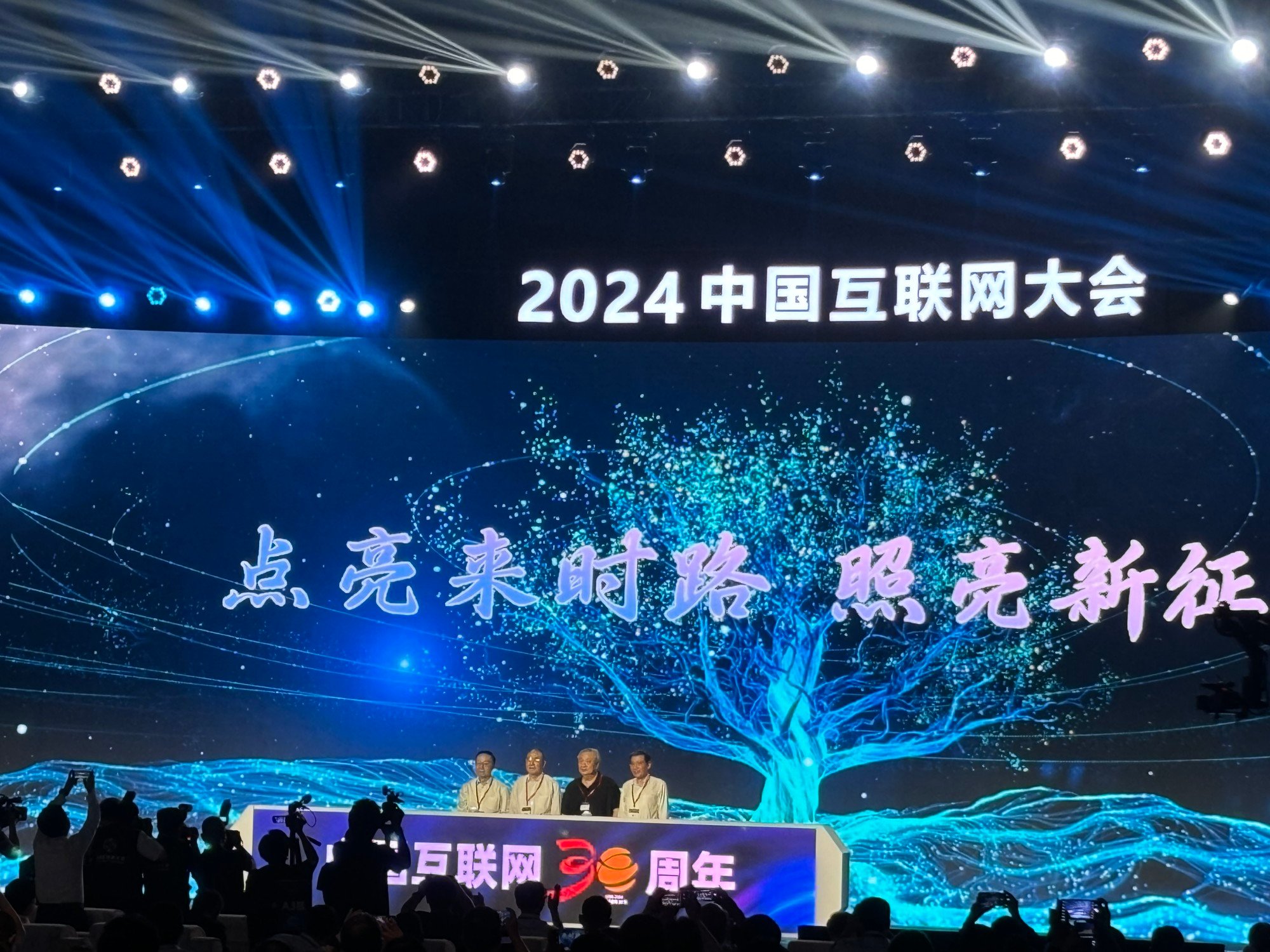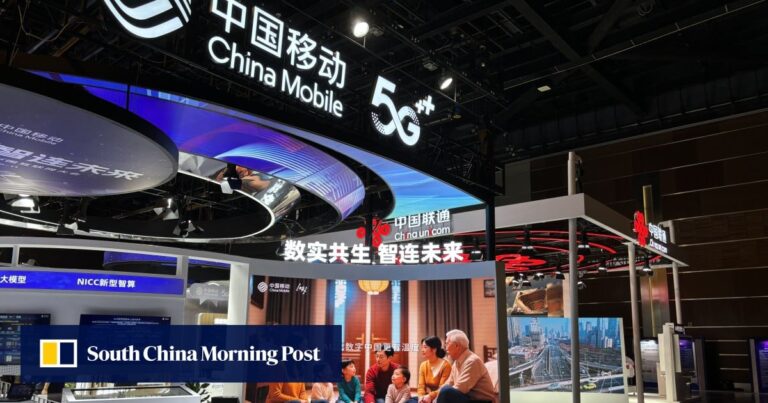Delegates at the conference marking the 30th anniversary of China’s internet connection put up a brave show despite U.S. tech restrictions, underscoring China’s determination to become self-sufficient in artificial intelligence (AI) and future internet technologies.
The China Internet Conference, a three-day event that kicked off on Tuesday, will feature exhibits by mainland state-owned enterprises, with speakers highlighting the country’s achievements and advantages in internet development.
China’s internet over the past three decades was built on funding and technology from the U.S., but as the global tech sector polarizes, China is pinning its hopes on domestic advances, according to speeches and exhibits at the expo.
Wu Hequan, a former vice president of the Chinese Academy of Engineering and a pioneer in China’s communications network development, said China’s restrictions on access to advanced semiconductors “have a certain impact” but that China can ultimately overcome the obstacles by pooling computing resources.
Wu, an 81-year-old engineer, said a lack of access to “advanced foreign chips,” without naming the U.S., could slow the expansion of China’s computing power, a key component of training generative AI models, but added that China has already developed enough computing infrastructure to fuel its AI ambitions. China has the second-largest computing power in the world after the U.S., Wu noted.

Washington’s export controls have prevented U.S. tech companies such as Nvidia from selling advanced products to Chinese customers, creating a hardware bottleneck for China’s AI ambitions.
Shan Bin, chairman of the China Internet Society, which hosted the event, said China could allocate more resources to AI chip research to develop a “controllable” AI model ecosystem. In his speech, Shan noted that China has so far built a network of more than 3.8 million 5G stations across the country, covering more than 90% of the population.
The country’s major telecommunications network operators, China Mobile, China Telecom and China Unicom, set up spacious exhibition booths at the event to display their products for AI development. China Mobile, for example, touted its new intelligent computing center, which it began developing in 2022 to support China’s digitalization efforts.
Zhang Dong, the company’s vice general manager, said an AI-enabled internet would help boost China’s “new productive forces”, a phrase used by President Xi Jinping to describe economic development based on labor, technology and infrastructure.
Speaking at a forum focused on large-scale language model development, Wang Zheng of the Ministry of Industry and Information Technology said the ministry will promote the integration of AI and the real economy.
Representatives from Chinese internet companies also attended the expo. Zhu Chen, vice president of Pinduoduo, a popular shopping app owned by PDD Holdings, said the push for overseas e-commerce has helped Chinese factories reach consumers overseas.

